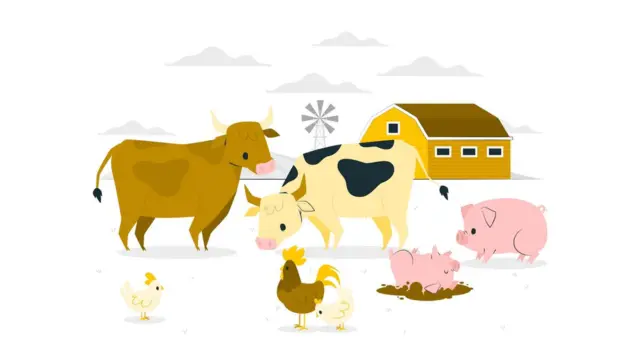Due to practicing good animal husbandry practices, productivity (yield of milk, meat, eggs, fur, etc.), cost efficiency, sustainability and hygiene increase while the chance of disease reduces. In developing countries, many farmers tend to avoid good animal husbandry practices such as maintaining adequate animal density, breed improvement, balanced nutrition and bio-security measures thinking that it will increase their production cost.
But the fact is quite the opposite, any single disease outbreak in your cattle or poultry farm can wipe out the entire animal population present on the farm. For example, recently in India, due to the lumpy skin disease outbreak around 97,000 cattle died. Therefore, to avoid such instance it is essential to practice good animal husbandry practices.
As you know animal husbandry is a branch of agriculture science that includes poultry farming, dairy farming, pig farming, horse farming, goat farming, fish farming, apiculture, sericulture, etc. So, there are a few basic good animal husbandry practices that farmers should follow in all these branches to increase the productivity and profitability of the farm.
Benefits Of Good Animal Husbandry Practices To Farmers

- Disease Prevention: The most important benefit is disease prevention. By practicing good sanitization practices, on-time vaccinations, and feeding a balanced diet to animals farmers can prevent disease outbreaks in their farms.
- Optimal Production: Due to breed improvements, good sanitization, feeding, etc. animal health and productivity improve. Only by practicing good animal husbandry practices, farmers can expect optimum yield from their animals.
- Environmental Conservation: Waste released from animal farms is a major source of pollutants and greenhouse gas emissions. Therefore, effective management of animal waste helps to reduce greenhouse gas, soil and water pollution.
- Sustainability: Animal farm waste a a good source of nutrients for field crops. Therefore decomposing animal waste and converting them into manures increases agricultural sustainability.
- Profitability: By practicing good animal husbandry practices chance of disease outbreak decrease while productivity increases. It helps to increase the overall farm efficiency. Thus costs spent on disease treatment and emergency measure decreases which increases the overall productivity.
- Marketing: People love buying food products from a hygienic place. Moreover, many companies related to selling milk products, eggs or meat also love to maintain their standards. Therefore, if you follow good practices, then the chances of selling your products at higher prices increase.
If you have any queries, ideas or suggestions, then please comment below. You can also connect with Agriculture Review on Facebook, Instagram, Koo and WhatsApp Messenger.




